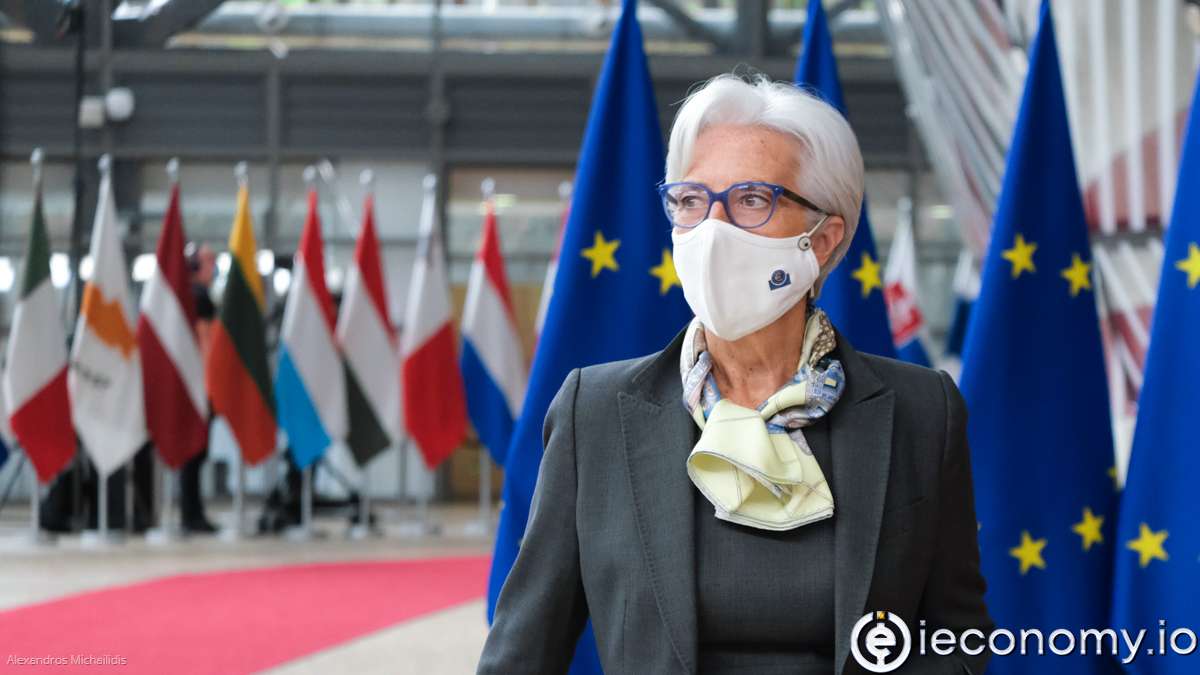5372
0
The eurozone economy is recovering faster than expected
The eurozone economy is recovering faster than expected. However, Lagard warns against premature withdrawal of support.

Yazar: Tom Roberts
Yayınlanma: 26 Haziran 2021 16:19
Güncellenme: 20 Şubat 2026 20:50
The eurozone economy is recovering faster than expected
The eurozone economy is recovering faster than originally expected. However, it still needs continued fiscal and monetary support so that the Covid-19 pandemic does not leave scars. Christine Lagard, President of the European Central Bank (ECB), said this at a summit of European Union leaders on Friday. "Eurozone gross domestic product (GDP) is recovering and will return to pre-pandemic levels by the first quarter of 2022, a quarter earlier than expected in the spring," Lagard was quoted as saying by one of the bloc's leaders, who did not want to be named. The President of the ECB called on leaders to continue the stimulus and loose monetary policy, and warned that premature withdrawal of support could derail the economic recovery. "Fiscal and monetary policies continue to play a role in fostering economic activity and strengthening confidence. Support needs to be continued to prevent the pandemic from leaving large scars on the economy, "she said. Lagard cited as an example the end of stimulus too early after the financial and economic crisis more than 10 years ago, when the recovery did not last in 2011 because "green shoots were not watered", an unnamed source quoted her as saying. European economies are beginning to recover and gain momentum as vaccination accelerates. The number of new infections is falling and demand is rising sharply, as a result of which prices are also rising sharply. This puts pressure on the ECB to consider ending emergency incentives and on governments to consider reducing the debt burden. Lagard reiterated her view to EU leaders that the looming rise in inflation this autumn will be temporary and the corresponding price pressures will remain subdued. According to her, more dynamic and sustainable growth is needed in the eurozone, she said that monetary policy will continue to play a role in strengthening confidence, while the risks to the economic outlook are now balanced. At the same time, the head of the ECB called on leaders to make more progress on the issue of banking union and capital markets after years of talks have not brought about a significant shift. There was no breakthrough at Friday's summit either, as this autumn's parliamentary elections in Germany suspended talks between eurozone leaders on closer integration.İLGİLİ HABERLER





European stocks soared and focus shifted to German retail sales after Powell's speech!

Forex Signal For TRY/USD: Inflation Slowdown in November.

Forex Signal For GBP/USD: Bullish Trend Still Not Breaking While Recovery Continues.

Forex Signal For EUR/USD: Starry US Data Points to Higher Fed Increases.

Forex Signal For BTC/USD: Downside Continues as Bitcoin Recovery Moves Less.
En Popüler Haberler
Yorum Yap
Yorumlar
Henüz yorum yapan yok! İlk yorumu siz yapın...